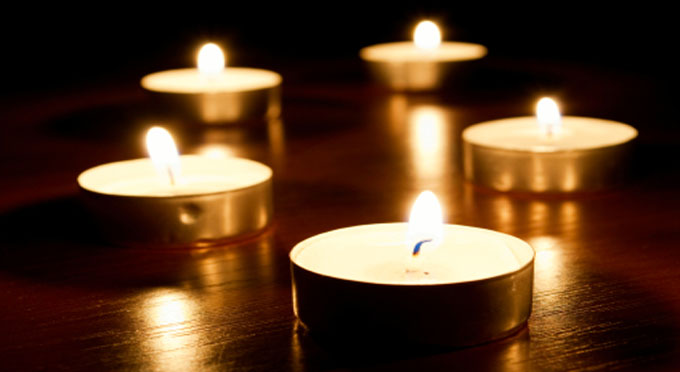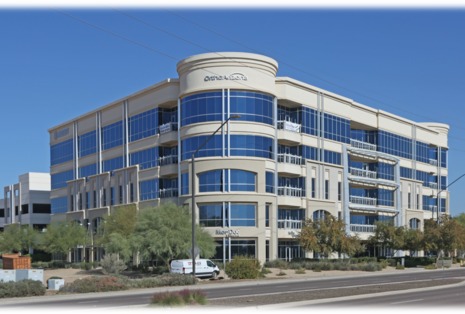Burial Plans, Cremation and Body Donation in Arizona
Your estate plan will contain space to list instructions for burial, cremation and/or organ donation.
For burial or cremation, many places offer prepaid plans in which you can purchase your plot and pay for costs upfront. People will often take out a small insurance policy to cover final expenses. It is not uncommon for these costs to average between $5,000 and $10,000.
Resomation, or green cremation, is a new alternative to cremation being introduced to the United States.
Religious Stances on Organ and Tissue Donation
It may be surprising to some to learn that with only a few exceptions all of the major religions affirm and celebrate organ and tissue donation.
Words like caring, sharing, compassion, and sacrifice are at the heart of most religions.
Organ and tissue donation is generally considered to be the ultimate humanitarian act of benevolence. If you have questions, consult your religious advisor and contact Four Peaks Planning, Inc. if you find incorrect information below.
Assembly of God
While the church has no official policy on organ and tissue donation, the denomination has been highly supportive of donation in the past. However, the decision to donate is left to each individual.
Baptist
Donation is supported as an act of charity; the decision to donate up to the individual.
Buddhism
Buddhists believe the donation of organ and tissue is a matter of individual conscience and place high value on acts of compassion. Reverend Gyomay, President and Founder of the Buddhist Temple of Chicago says, "We honor those people who donate their bodies and organs to the advancement of medical science and to saving lives."
Catholicism
Catholics view organ/tissue donation as an act of charity and love. Transplants are morally and ethically tolerable to the Vatican. Pope John Paul II called upon Catholics and people of good faith everywhere to move from a "culture of death" toward a celebration and reflection of the glory of God in a "culture of life."
Christian Science
The Church of Christ Scientist does not have an explicit position; the question of organ and tissue donation is an individual decision. Christian Scientists normally rely on spiritual means of healing instead of medical. They are free, however, to choose whatever form of medical treatment they desire — including a transplant.
Church of Jesus Christ of Latter Day Saints (Mormons)
The donation of organs and tissues is a selfless act that often results in great benefit to individuals with medical conditions. The decision to will or donate one's own body organs or tissue for medical purposes, or the decision to authorize the transplant of organs or tissue from a deceased family member, is made by the individual or the deceased member's family. The decision to receive a donated organ should be made after receiving medical counsel and confirmation through prayer.
Church of the Nazarene
The Church encourages members who do not object personally to support donor and recipient anatomical gifts through living wills and trusts. Additionally, the Church appeals for morally and ethically fair distribution of organs to those eligible to receive them.
Episcopal
The Episcopal Church now recognizes the life-giving benefits of organ, blood, and tissue donation. All Christians are encouraged to become donors "as part of their ministry to others in the name of Christ, who gave his life that we may have life in its fullness."
Hinduism
Hindus are not prohibited from donation as confirmed by religious laws. This act is an individual's decision. Nothing in the Hindu religion indicates that human tissue and organs cannot be used to ease the affliction of other humans.
Islam
Islams strongly believe in the principle of saving human lives. The majorities of Muslim scholars, belonging to various schools of Islamic law have called upon the principle of saving human lives and have permitted organ transplant for the same reason.
Jehovah’s Witness
Jehovah Witnesses believe donation is a matter of individual decision. However, there are limitations pertaining to blood transfusion. Jehovah Witnesses are often presumed to be opposed to donation because of their belief against blood transfusion. This only means all blood must be removed from the organs and tissues before being transplanted. It would not be tolerable, though, for an organ donor to receive blood as part of the organ recovery process.
Judaism
All four branches (Orthodox, Conservative, Reform, Reconstructionist) support and encourage donation.
Lutheran
Lutherans believe donation contributes to the well-being of humanity and can be "an expression of sacrificial love for a neighbor in need." They call on "members to consider donating organs and to make any necessary family and legal arrangements, including the use of a signed donor card."
Mennonite
Mennonites have no official position on donation, but are not opposed to it. They believe the decision to donate is up to the individual and/or their family.
Pentecostal
Pentecostals believe the decision to donate should be left up to the individual.
Presbyterian
Presbyterians encourage and support donation. They respect the right to make decisions for their own body.
Protestantism
Because of the many different Protestant denominations, a generalized statement on their attitudes toward organ/tissue donation cannot be made. However, the denominations share a common belief in the New Testament. (Luke 6:38 Give to others and God will give to you.) The Protestant faith respects individual conscience and a person's right to make decisions regarding his or her own body. It is also generally not believed that resurrection involves making the physical body whole again.
Seventh-Day Adventist
Donation and transplantation are strongly encouraged by Seventh-Day Adventists. They have many transplant hospitals, including Loma Linda in California.
Shinto
In Shinto, the dead body is considered to be impure and dangerous, and thus quite powerful. Families are often concerned that they not injure the itai - the relationship between the dead person and the bereaved people.
Unitarian Universalist
Unitarian Universalists affirms the natural worth and dignity of every person and respect the interdependent web of all existence. They state the value of organ and tissue donation, but leave the decision to each individual.
United Methodist
Organ and tissue donation is to be encouraged, assuming appropriate safeguards against hastening death and determination of death by reliable criteria. United Methodist recognize the life-giving benefits of organ and tissue donors by signing and carrying cards or driver's licenses, attesting to their commitment of such organs upon their death, to those in need, as part of their ministry to others in the name of Christ, who gave his life that we might have life in its fullness.
Donation Organizations
Four Peaks Planning, Inc. does not endorse any particular action for one's final remains. However, we have agreed to provide links to accredited programs dealing with organ donation and whole body donation for medical research, training and professional education.
Science Care pays all costs for donation: transportation from the place of passing to their medical facility, death certificate filing, cremation and return of cremated remains. Their programs contribute to new breakthroughs and developments in medicine, including advanced phyisician training and development of new medical devices for more effective treatment of patients.






